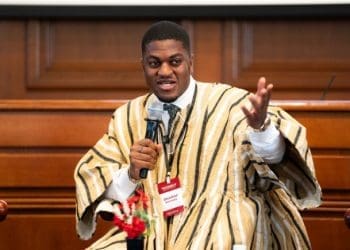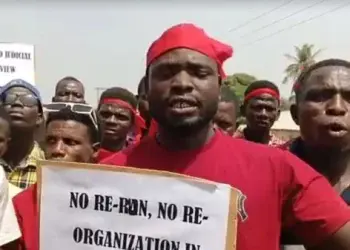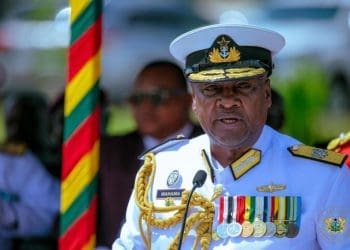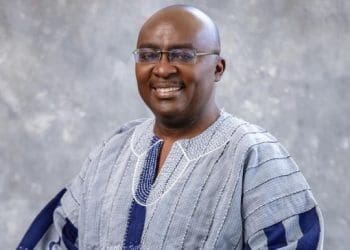The one-week observance of Ghana’s highlife legend, Charles Kwadwo Fosu, popularly known as Daddy Lumba, was marked at Independence Square in Accra on Saturday, August 30, 2025, with a massive outpouring of love, music, and support. The event, which drew hundreds of mourners, including some of the country’s most prominent political figures, also saw generous donations amounting to over GH¢200,000 made towards the musician’s final funeral rites.
Former President Nana Addo Dankwa Akufo-Addo led the contributions with a personal donation of GH¢100,000, while former Vice-President Dr. Mahamudu Bawumia followed with GH¢50,000.
Kennedy Agyapong contributed GH¢10,000, Dr. Matthew Opoku Prempeh (popularly known as NAPO) gave GH¢5,000, and former Trade Minister Alan Kyerematen also donated GH¢5,000.
In addition, the Ghana Police Service showed institutional support by giving GH¢30,000.
 These donations, rooted in Akan funeral tradition where contributions are made to support the family of the deceased, reflected the deep respect many held for Lumba, not only as a musical icon but also as a unifying national figure.
These donations, rooted in Akan funeral tradition where contributions are made to support the family of the deceased, reflected the deep respect many held for Lumba, not only as a musical icon but also as a unifying national figure.
Mourning and celebration
The ceremony, jointly organised by the Creative Arts Agency and the Fosu family, turned the historic Independence Square into both a ground of mourning and celebration.
The event was filled with heartfelt tributes, moving performances, and recollections of a life that touched countless Ghanaians.
Artists such as Amakye Dede, Sarkodie, Kofi Nti, and Bless took to the stage to perform renditions of Lumba’s most memorable songs, stirring emotions among the gathered crowd.
As the melodies of Makra Mo, Aben Wo Ha, and Sika filled the air, the atmosphere became a powerful reminder of how Lumba’s music had defined moments in people’s lives for over four decades.
Creative arts meet politics in honour of a legend
What stood out at the event was the unique intersection of Ghana’s creative arts industry and political leadership.
The presence of top NPP figures such as Akufo-Addo, Bawumia, Kennedy Agyapong, NAPO, Alan Kyerematen, and Education Minister Dr. Yaw Osei Adutwum reflected the national weight attached to the ceremony.
Their appearance was not only symbolic of their personal admiration for the late highlife great but also highlighted the political class’s acknowledgement of the creative arts as a vital part of Ghana’s national identity.
For decades, Daddy Lumba’s music had transcended political, religious, and generational boundaries, resonating with ordinary citizens and leaders alike.
Akan funeral traditions observed
The generous financial support at the one-week observance was in line with Akan customs, where mourners present donations, known as nsawa, to assist with funeral expenses.
These contributions are seen not merely as financial support but as a demonstration of solidarity, honour, and respect for the deceased and their family.
Organisers revealed that the final funeral rites would be held in Kumasi, though the date is yet to be announced.
 Family representatives also indicated that government support, including a possible state-assisted funeral, was under discussion to ensure Daddy Lumba’s farewell reflected his national stature.
Family representatives also indicated that government support, including a possible state-assisted funeral, was under discussion to ensure Daddy Lumba’s farewell reflected his national stature.
Cultural impact and lasting legacy
Born on September 29, 1964, in Nsuta, Ashanti Region, Charles Kwadwo Fosu rose from humble beginnings to become one of Ghana’s most celebrated musicians.
His ability to blend soulful highlife with contemporary sounds earned him admiration across generations.
Lumba’s songs often tackled themes of love, betrayal, social realities, and personal reflections, making him relatable to a broad audience.
His extensive discography includes hits such as Akwanoma, Mensei Da, Theresa, Yentie Obiaa, and Poison.
These songs not only dominated Ghana’s airwaves but also gained traction within Ghanaian communities abroad, making him an international ambassador of Ghanaian highlife.
Over his four-decade career, Lumba released more than 30 albums containing over 200 songs, cementing his reputation as one of the most prolific and consistent artists in Ghana’s music history.
His influence extended beyond entertainment, shaping the social fabric and serving as the soundtrack to the lives of millions of Ghanaians at weddings, funerals, political rallies, and personal milestones.
Nation prepares for a grand farewell
Lumba passed away on August 8, 2025, after a prolonged illness, sending shockwaves across Ghana and the diaspora.
In the weeks following his death, tributes poured in from fellow musicians, fans, politicians, and cultural commentators, all describing him as an irreplaceable figure in Ghana’s music heritage.
The one-week observance at Independence Square was only the beginning of a series of commemorative activities planned to celebrate his legacy.
 Family representatives announced that additional memorial concerts and a state-assisted funeral would follow, ensuring that his contribution to Ghana’s culture receives the recognition it deserves.
Family representatives announced that additional memorial concerts and a state-assisted funeral would follow, ensuring that his contribution to Ghana’s culture receives the recognition it deserves.
A legend lives on through music
Though his passing has left a void in Ghana’s creative industry, Daddy Lumba’s legacy endures in his music, which continues to resonate with both young and old.
His voice, lyrics, and artistry remain etched in the nation’s collective memory, ensuring that even in death, Charles Kwadwo Fosu will keep shaping the rhythms of Ghanaian life for generations to come.












